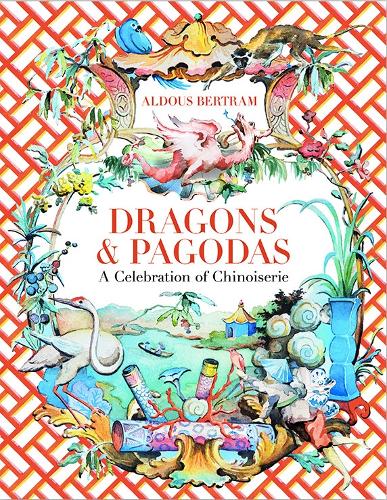
Dragons & Pagodas: A Celebration of Chinoiserie
(Hardback)
Publishing Details
Dragons & Pagodas: A Celebration of Chinoiserie
By (Author) Aldous Bertram
Vendome Press
Vendome Press
23rd September 2021
23rd September 2021
United States
Classifications
General
Non Fiction
Decorative arts
Cultural studies
709
Physical Properties
Hardback
256
Width 235mm, Height 305mm
1820g
Description
"What a delight it is to look through this book, technicolour lavishness leaping from every page." - House & Garden
"The drama of colour, ornamentation and exoticism is sustained throughout this sumptuously illustrated book, yet there are highlights: from the astonishing pyramidal ceiling inside Lisbon's Santos Palace featuring 261 carefully suspended Ming dynasty plates to the somewhat oppressive interior of the Tartar tent at the Chteau de Groussay created for Charles de Beistegui in 1960, and covered in 10,000 delft tiles... Written by an enthusiast, this is a book that might convert many to the cult of chinoiserie, that 'alternative world of delightful otherness'." - The World of Interiors
Chinoiserie is a term for Western art and design inspired by a largely invented vision of China. Marco Polo's sensational account of his visit to the exotic East in the thirteenth century sparked an insatiable demand for knowledge of China. The feeling was not mutual, however, and the Chinese kept the Western "barbarians" at arm's length. By the eighteenth century, piecemeal reports about the country filled with hearsay and myth were eagerly disseminated across Europe, and fascination with China reached a fever pitch. Everything that found its way out of China was highly prized, from blue-and-white porcelain vases to lacquer screens to precious tea leaves. But because a clear vision of the country was perpetually shrouded in mystery, Westerners reveled in the fanciful interpretations of Chinese life churned out by artists, and chinoiserie was born, first in Holland and soon in France, Germany, and England, where it was most successfully absorbed into mainstream fashion. Indeed, "Chinese Chippendale"-style fretwork railings and bridges flooded the gardens of England and proved even more popular in its North American colonies.
Aldous Bertram has been captivated by chinoiserie all his life and even wrote his doctoral thesis at Cambridge University on Chinese pavilions in English gardens. He organizes Dragons & Pagodas by theme, including porcelain, color and pattern, flora, fauna, people, architecture, and tropical exoticism. Each chapter is bursting with images of everything from grand European summer palaces and whimsical pagoda follies to charming details of screens, porcelain figurines, and ornate plasterwork, from modern rooms swathed in floral wallpaper to paintings, tapestries, and palm-topped columns. Complete with Bertram's own chinoiserie-inspired watercolors and collages, Dragons & Pagodas is an irresistible confection and an example of chinoiserie in its own right.
Reviews
"In this inspiring and informative tome, Aldous Bertram explores the influence of Asia on design elements. . . . If you prefer your pretty pictures with a healthy dose of history and context, this book is for you."
-- "House Beautiful""Bertram takes us on a kaleidoscopic journey into the history of the term Chinoiserie, covering everything from architecture to patterns and palettes. While the entire tome is a feast for the eyes, we were especially drawn to his deep dive into porcelain and its enduring popularity."-- "Frederic"
Author Bio
Aldous Bertram is an artist, illustrator, muralist, and interior designer who works for Lindroth Design and runs the Charleston, South Carolina studio. His interiors have been featured in House Beautiful and other design publications. He received his PhD from Cambridge University, specialising in the historical influence of China on English garden design and architecture. He created the effervescent watercolors for Amanda Lindroth's recent book Island Hopping (Vendome). He lives in Charleston, South Carolina.
